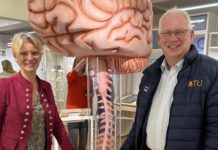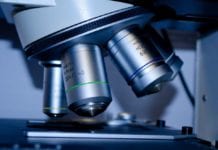A deep sea coral discovered by NUI Galway researchers in the Atlantic Ocean contains a potential wonder chemical which that acts against the virus responsible for COVID-19.
The cauliflower coral, so named due to its colour, shape and structure, was found on the seabed about half a mile below the surface on the edge of Ireland’s continental shelf.
The sample has been found to contain a previously unknown chemical compound, which blocks the manufact
Professor Louise Allcock, Professor of Zoology at NUI Galway, said that while they didn’t set out to find this specifically, they were looking for corals due to their potential in bio-discovery.
“Nature never ceases to amaze – to think that a coral, which spends its life on the sea bed and is never exposed to viruses and diseases which affect humanity so profoundly, has the potential to influence treatments and therapies.”
“Drug development is a lengthy process, but the first step is finding the magic compounds with bio-reactivity in the laboratory.”
The chemical compound has been named “tuaimenal”, a portmanteau of “tuaim”, alluding to “tuaimneacha” as used in old Irish to describe the sounds of the sea, and “enal”, which is a chemistry term for a compound with an alkene aldehyde functional group.
Tuaimenal A was discovered to block the major enzyme of the Covid-19 virus, known as Main Protease, which is responsible for the manufacture of virus particles inside the infected cell.
The coral was found by the ROV Holland I remote submarine, deployed from the Marine Institute’s Celtic Explorer research ship.
Prof Allcock uses the submarine to search for deep-sea corals and sponges which may have novel chemical compounds with pharmaceutical potential as part of a research project funded by Science Foundation Ireland.
Dr Carolina De Marco Verissimo of the Molecular Parasitology Laboratory at NUI Galway carried out detailed study of the coral-derived Tuaimenal and how it interacts with the Covid-19 enzyme.
“Tuaimenal A represents what we term in science as a ‘lead compound’ – that is, a basic structure from which scientists can produce more potent and specific drugs that could be used for the treatment of Covid-19 and perhaps other viruses.”
The research into the chemical make-up of the cauliflower coral is being conducted in partnership with South Florida University in the US.













